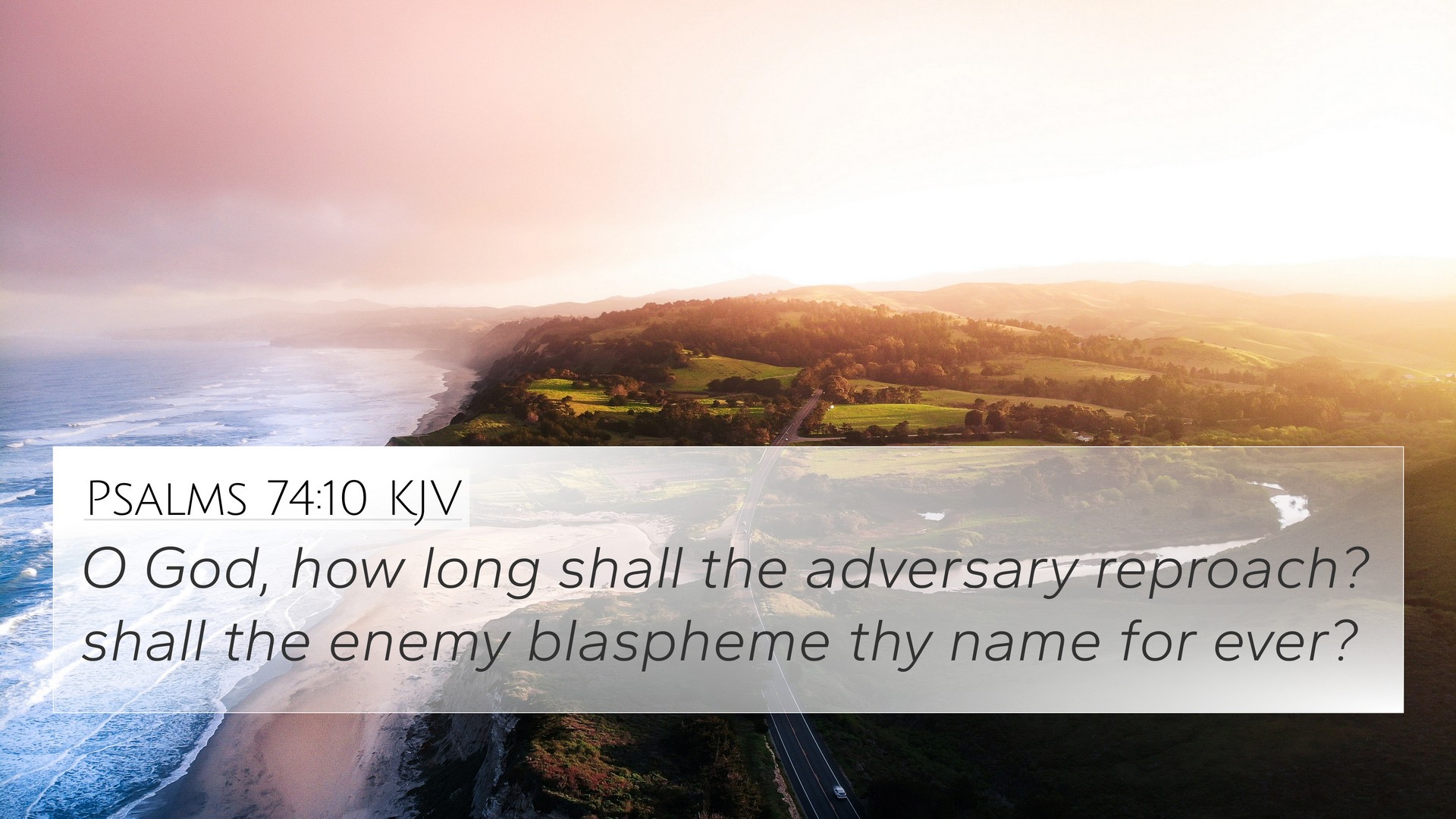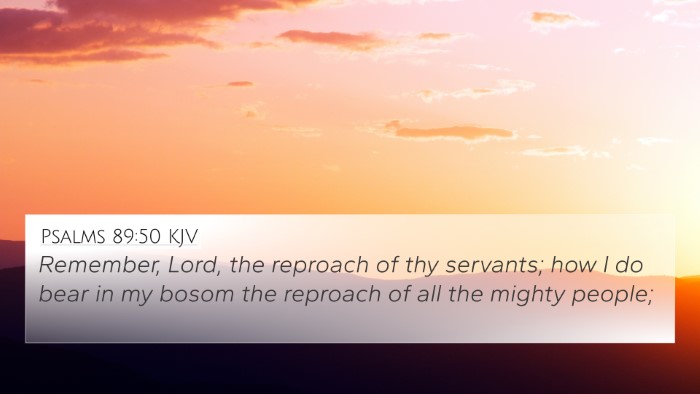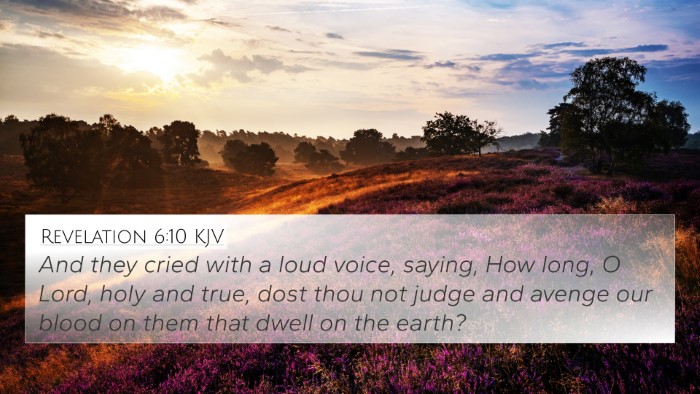Psalms 74:10 reads: "O God, how long shall the adversary reproach? Shall the enemy blaspheme thy name for ever?" In this verse, the psalmist expresses deep anguish over the prolonged suffering and reproach that the people of Israel are enduring from their enemies. The question directed toward God signals a plea for intervention and a longing for restoration.
The verse encapsulates several themes that span both the Old and New Testaments, demonstrating a rich tapestry of scriptural connections. Understanding Psalms 74:10 can be enhanced through comparative Bible verse analysis and thematic Bible verse connections.
Meaning and Interpretation
- Expression of Desperation: The psalmist's cry illustrates a profound desperation for divine assistance. Commentaries highlight that this outcry is not just an isolated plea but a reflection of the collective suffering of the Israelite community amidst their trials.
- Divine Sovereignty: Despite the harsh realities depicted in this plea, the verse underscores God's ultimate authority over adversarial forces. Commentators emphasize a recurring theme in the Hebrew scriptures: even amidst turmoil, the faithful wait on God’s timing for deliverance.
- The Nature of God’s Name: The verse raises questions about the sanctity of God's name, which the enemies seek to blaspheme. This speaks to the broader biblical theme where the name of God represents God’s character and promises, historically upheld despite opposition.
Cross-References
To further understand Psalms 74:10, we can examine several related scriptures that enhance its meaning and context:
- Psalms 44:9-16: The psalmist shares sentiments of defeat and disgrace, questioning God’s silence in times of national distress.
- Psalms 79:5: Similar cries to God about the duration of suffering and the reproach from enemies are echoed, highlighting a common lamentation.
- Isaiah 37:3: A link to the theme of distress underlies God's concern for His people and their pleading for help against oppressors.
- Lamentations 5:20-22: This passage addresses feelings of abandonment and despair, reinforcing the motif of calling out to God in times of crisis.
- Romans 15:4: Paul speaks of the scriptures providing hope and endurance, reminding believers that past experiences of distress and God's interventions are foundational to faith.
- Revelation 6:10: The cry of the martyr reflects a similar anguish, questioning the timing of divine justice, thus linking New Testament themes to the Old Testament lament.
- Job 10:18-19: Job's questioning of God resonates with the psalmist's inquiry, demonstrating an age-old human struggle for understanding in suffering.
Thematic Connections
The interplay of themes within Psalms 74:10 aligns with various biblical doctrines, such as:
- The Reality of Suffering: Both Testaments reflect on the real human experience of pain and the desire for God’s intervention.
- The Hope in Deliverance: Throughout scripture, believers are reassured of God’s eventual justice and restoration.
- The Importance of Prayer and Lament: Lamentation forms a crucial part of faith, inviting believers to express their grief and concerns to God.
- The Contrast between God’s Judgement and Human Oppression: This theme runs through both Psalms and prophetic literature, illustrating the tension between earthly adversities and divine promise.
Comparative Analysis and Conclusion
The request "how long" encapsulated in Psalms 74:10 resonates deeply with the human experience. It connects various biblical voices grappling with suffering, creating a dialogue across texts. Commentators like Matthew Henry, Albert Barnes, and Adam Clarke provide insights that help congregate Old Testament laments with New Testament affirmations of hope and eventual restoration.
This inter-Biblical dialogue enriches our understanding of faith amidst adversity, reinforcing the importance of scripture in navigating life's trials.
Practical Application and Study Tools
For those engaging in cross-referencing Bible studies, various tools can facilitate deeper understanding:
- Bible Concordance: A comprehensive resource for identifying key terms and their occurrences throughout the Scriptures.
- Bible Cross-Reference Guide: Useful for finding related verses and understanding thematic connections.
- Cross-Referencing Bible Study Methods: Techniques such as thematic studies or group discussions can be applied for enriched study sessions.
- Bible Chain References: A method for exploring sequential connections between verses that trace themes throughout Scripture.
In essence, Psalms 74:10 encourages readers to voice their laments to God while reassuring them of His ultimate sovereignty and faithfulness in the face of life’s adversities.










